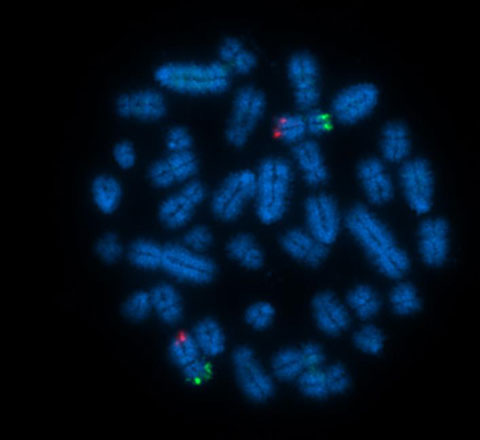



Scientists Develop New Device to Overcome Pig Genome Flaw
UK - Scientists at the University of Kent, working with colleagues from the genetics research industry[1], have developed a new genetic screening device and protocol that helps pig breeding.Through her work, Dr Rebecca O'Connor in the School of Biosciences, found previously undiscovered, fundamental flaws in the pig genome, the results of which have contributed to improved mapping of the pig genome.

In pigs - which provide 43 per cent of the meat consumed worldwide - a chromosome defect can affect fertility.
With each pig producing as many as 14 piglets per litter, a faulty chromosome can reduce this by as much as half, with massive economic costs to the producer.
Dr O'Connor's research, carried out in the Griffin Laboratory, has led to the development of chromosome screening devices for both pigs and cattle and a chromosome screening service to multiple agricultural food providers.
Now with 13 clients in eight different countries, the team are screening hundreds of samples a year, as well as adapting the method to screen for chromosome abnormalities in other species.
The research findings were presented to agricultural industry leaders at the Pig Breeders Round Table Conference, one of the foremost international conferences on livestock genetics, held at the University of Kent in May 2017.
Dr O'Connor, research associate in the School of Biosciences, won the 2017 University Prize for Postgraduate Research in recognition of her 'exceptional publication record, and achievements far beyond those normally expected of a doctoral student'.
[1] Genetics industry partners are Cytocell Ltd and JSR Genetics.








